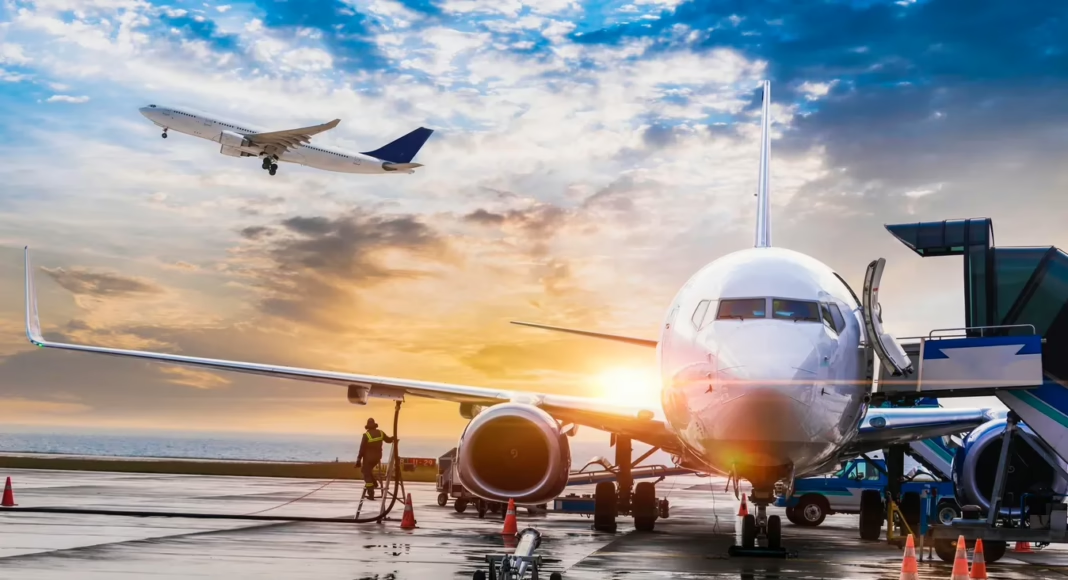Major European carriers face potential margin squeeze as transatlantic bookings from Europe decline, with analysts warning that US routes generate approximately half of airlines’ total profits.
Europe’s largest airlines are confronting a significant financial risk as demand for transatlantic flights softens, with analysts at Barclays estimating that US routes account for around 50% of profits for Lufthansa, Air France-KLM, and IAG, the parent company of British Airways.
Air France-KLM reported a 2.4% decline in transatlantic bookings from Europe to the US for May and June, while Lufthansa has flagged a “slight weakening” in bookings from Germany, Austria, and Switzerland. The carriers’ dependence on these high-profit routes could squeeze margins during what traditionally represents their strongest earning period.
“The discussions about tariffs are no longer as heated as they were four weeks ago. That is why we believe that some of these bookings will be recovered in the coming weeks,” Lufthansa CEO Carsten Spohr said during the airline’s earnings call on Tuesday.
The booking decline has prompted immediate action from carriers. Lufthansa announced plans to reduce its planned transatlantic capacity growth for the fourth quarter from 6% to 3% and established a task force to adjust flight schedules if demand continues to weaken.
Air France-KLM’s Chief Financial Officer Steven Zaat noted a diverging trend in transatlantic travel patterns. While bookings from Europe to the US declined 2.4%, demand from American travelers heading to Europe increased by 2.1%.
The softening demand extends beyond continental Europe. Virgin Atlantic reported a slowdown, particularly from US travelers heading to Britain. The airline’s Chief Financial Officer Oli Byers attributed the weaker demand to US consumer uncertainty, though corporate travel demand remains strong.
Delta Air Lines, Virgin Atlantic’s joint venture partner, expressed caution regarding the 2025 outlook. CEO Ed Bastian noted that results fell short of initial projections, citing stalled global trade growth and increasing economic uncertainty. American Airlines recently withdrew its full-year guidance due to ongoing weakness in domestic travel and broader macroeconomic concerns.
According to the Financial Times, foreign visitors to the US dropped by 12% in March compared to the same period last year, with Canadian travelers showing one of the most significant declines. Statistics Canada data revealed that air travel from Canada to the US decreased by 13.5% in March.
The International Air Transport Association (IATA) reported that North America was the only region globally to experience a decline in passenger demand in February. While global air travel demand grew by 2.6%, North America recorded a drop, attributed to ongoing concerns over US policy and economic factors.
Despite these challenges, both Air France-KLM and Lufthansa maintained positive outlooks for the broader summer travel season and reiterated their full-year forecasts. IATA’s Director General Willie Walsh downplayed the long-term impact, emphasizing that while trade tensions have created uncertainty, they do not constitute a major crisis for the industry.
The weakening demand follows changes in US policies and renewed concerns around border procedures since the start of 2025, contributing to a more cautious attitude among European travelers. Several EU countries have issued updated travel advisories, adding to traveler hesitation about transatlantic trips.

Key Takeaways
- US routes generate approximately 50% of profits for major European airlines including Lufthansa, Air France-KLM, and IAG, making them vulnerable to demand fluctuations.
- Air France-KLM experienced a 2.4% decline in Europe-to-US bookings for May and June, while American travelers to Europe increased by 2.1%.
- Lufthansa reduced its Q4 transatlantic capacity growth plans from 6% to 3% and created a task force to monitor demand.
- Foreign visitors to the US dropped 12% in March 2025, with Canadian air travel to the US falling 13.5%.
- Despite concerns, airlines maintain positive outlooks for summer travel and full-year forecasts.



